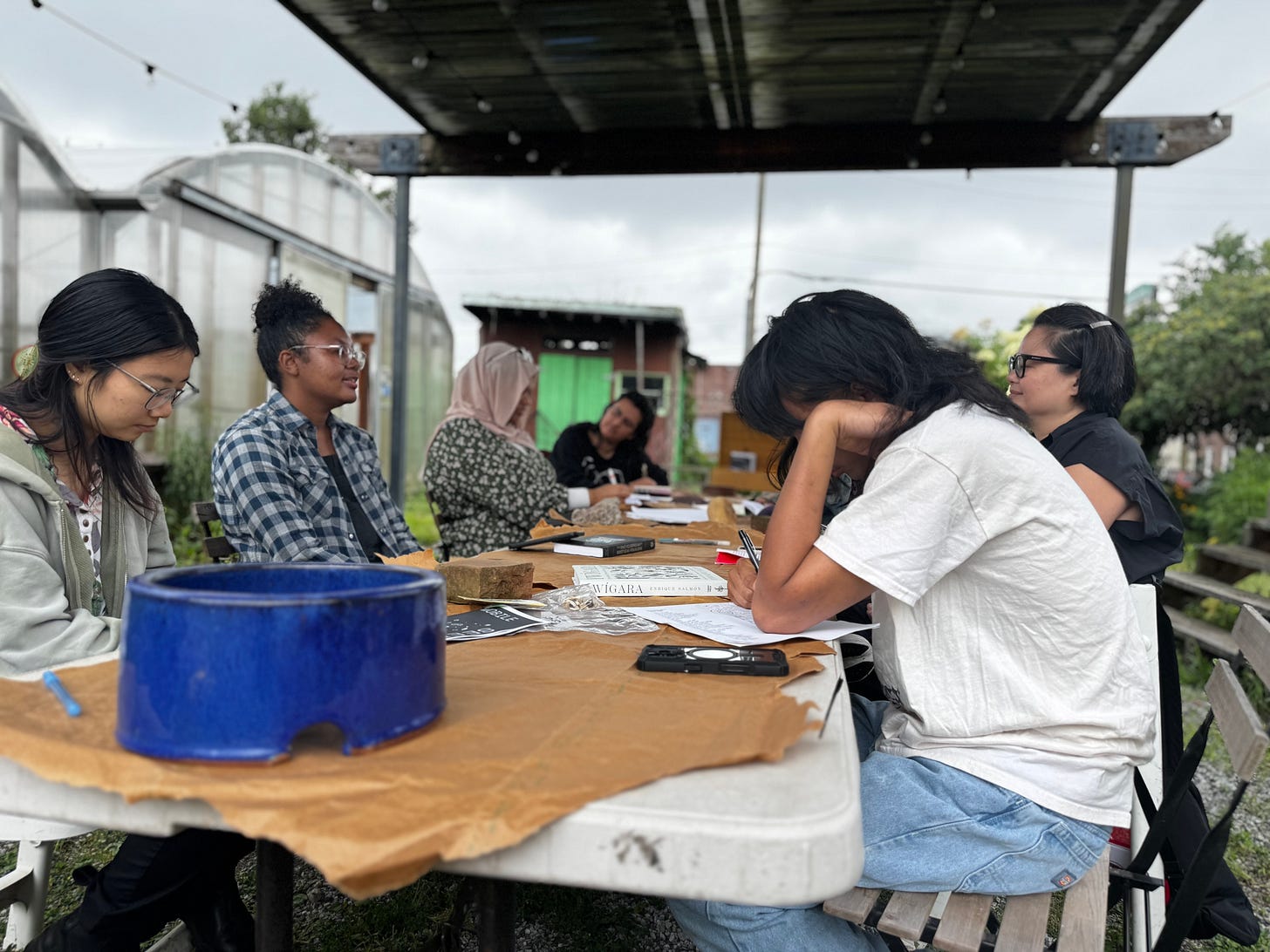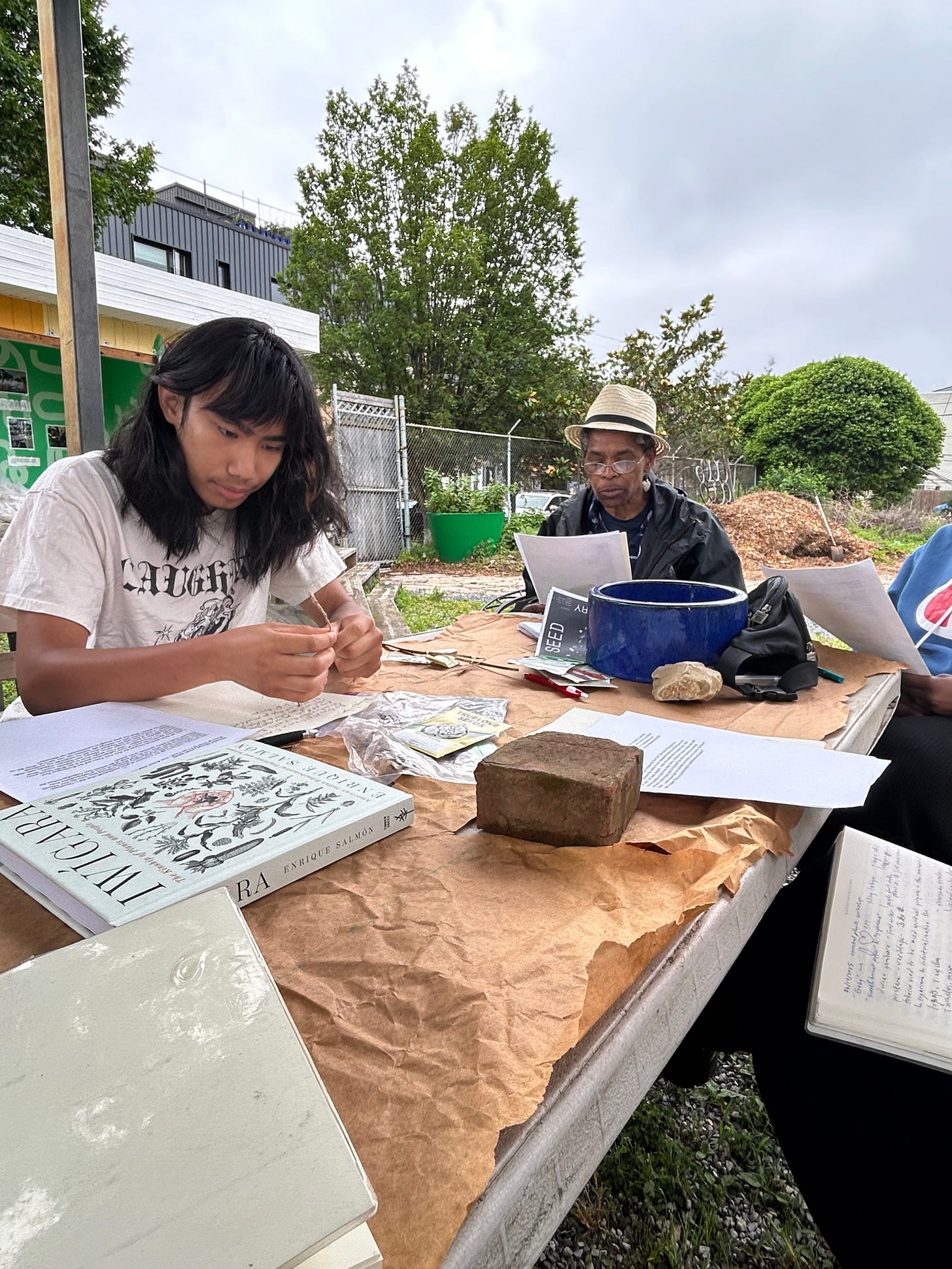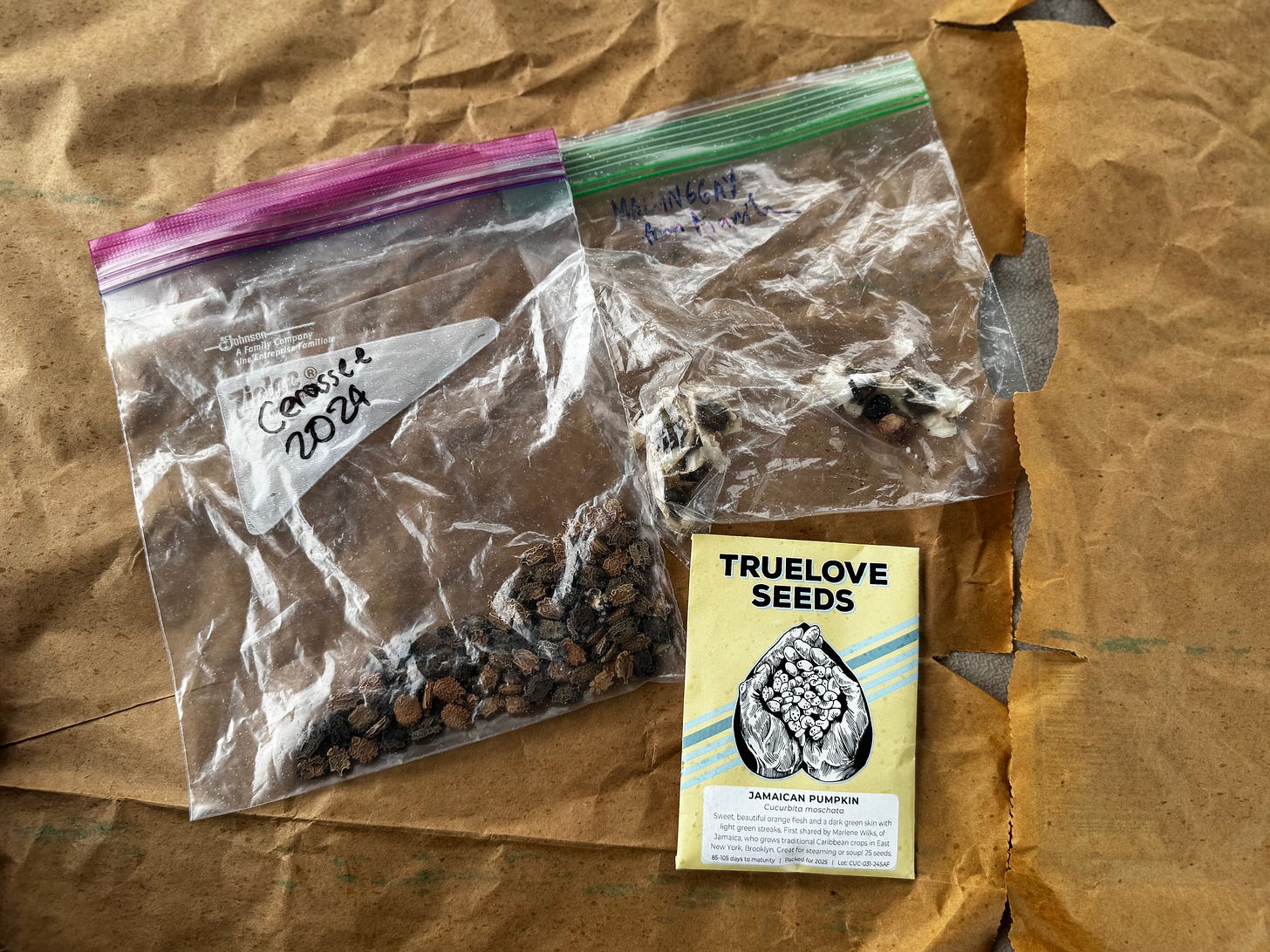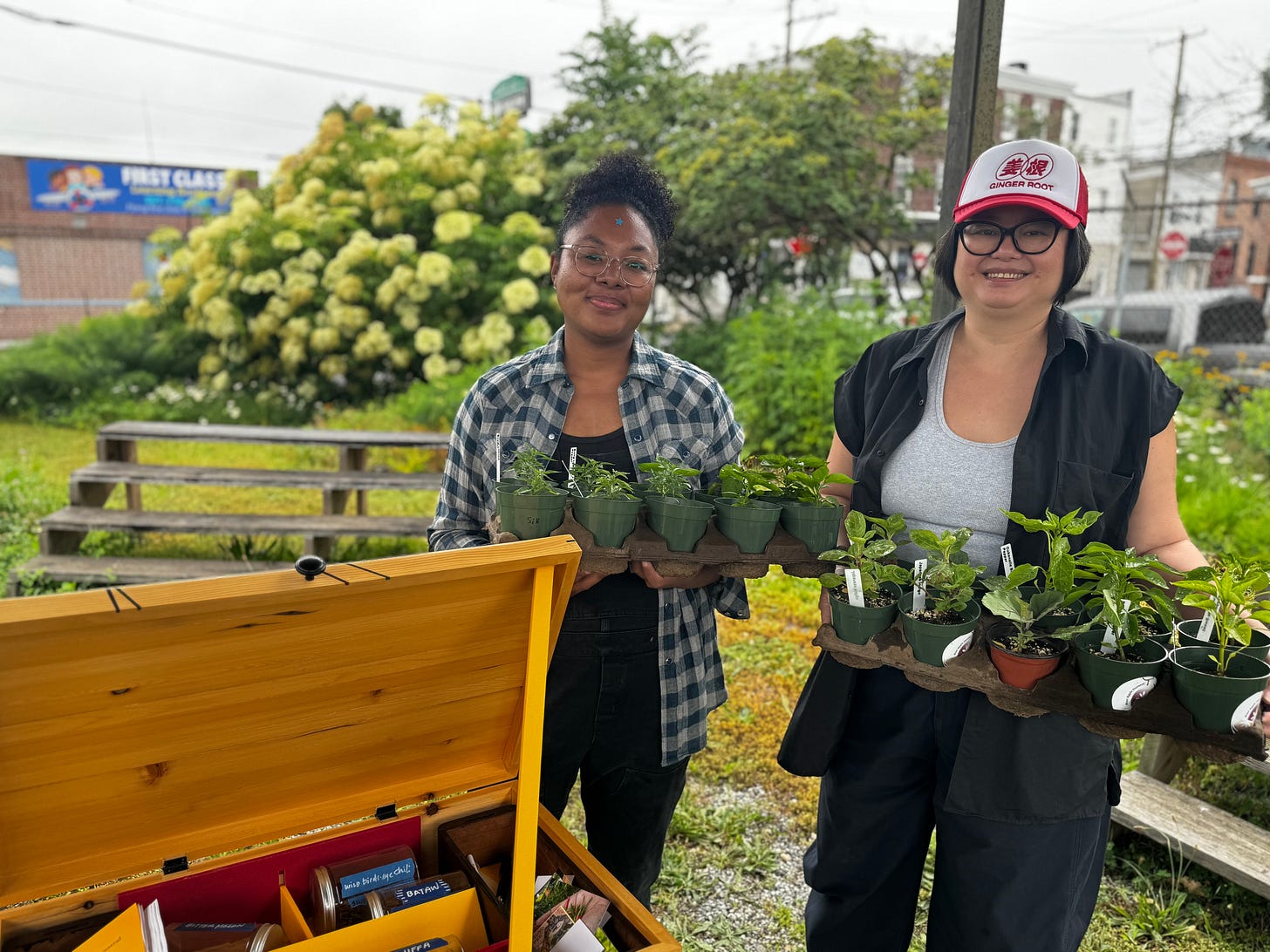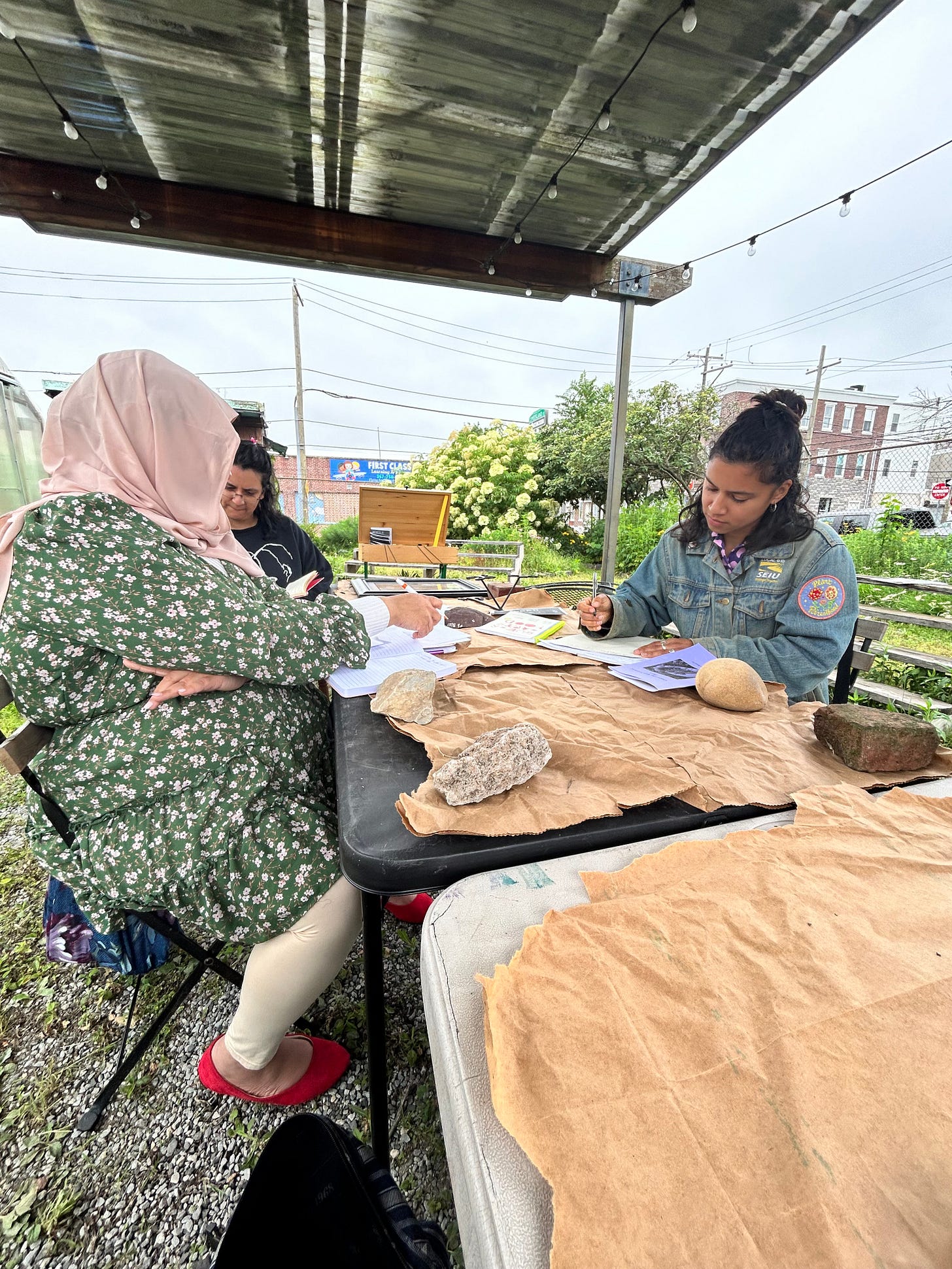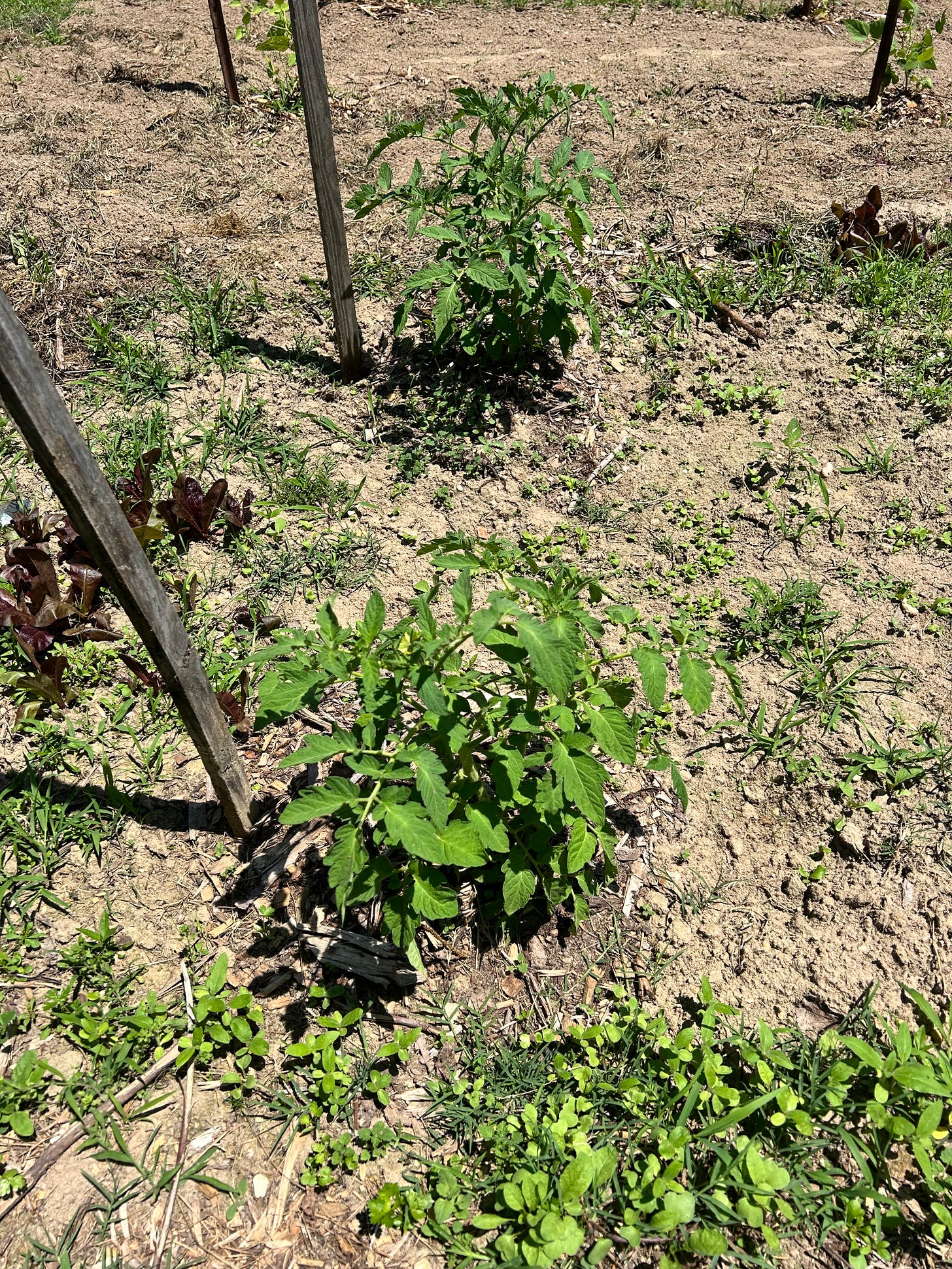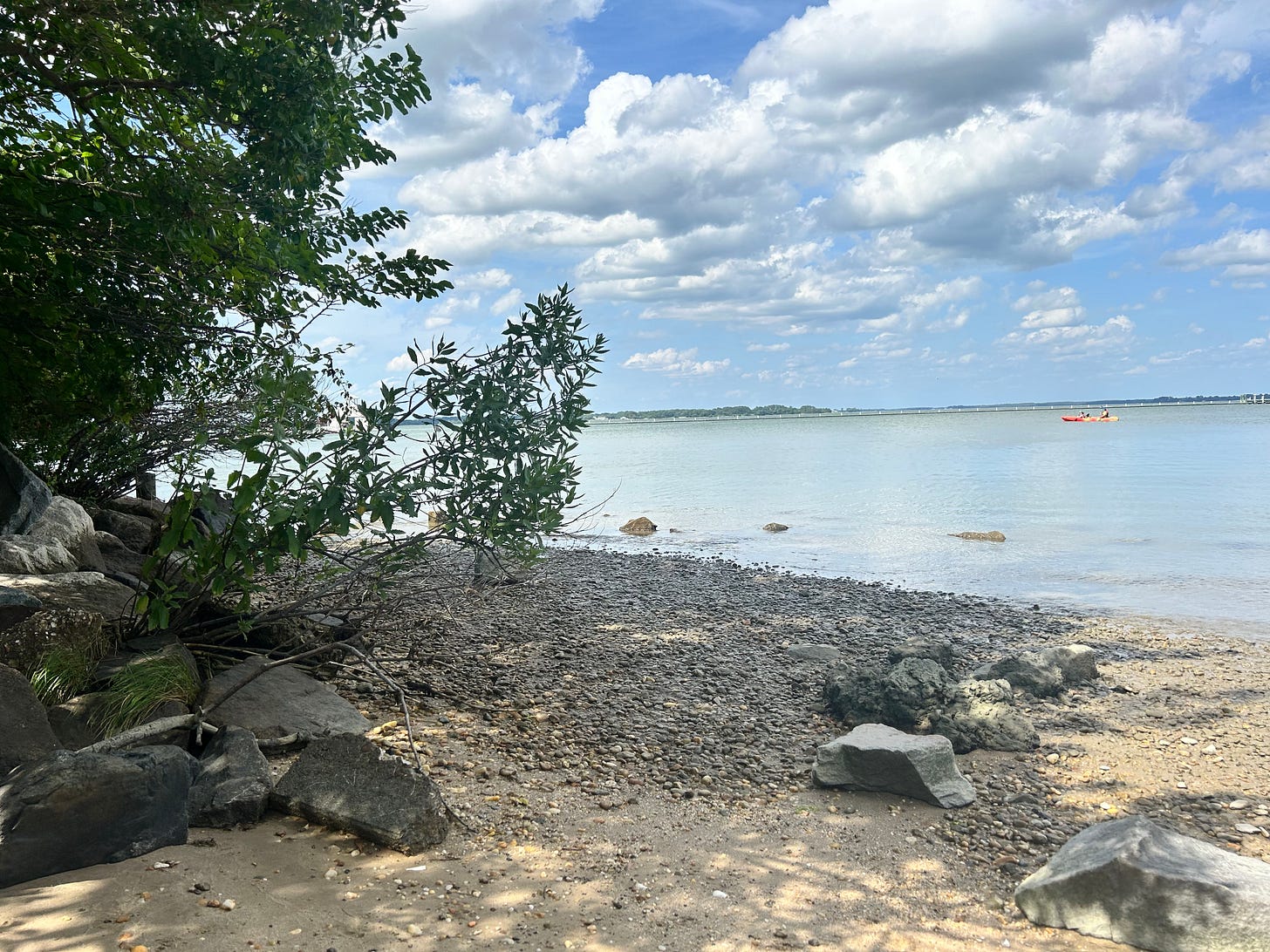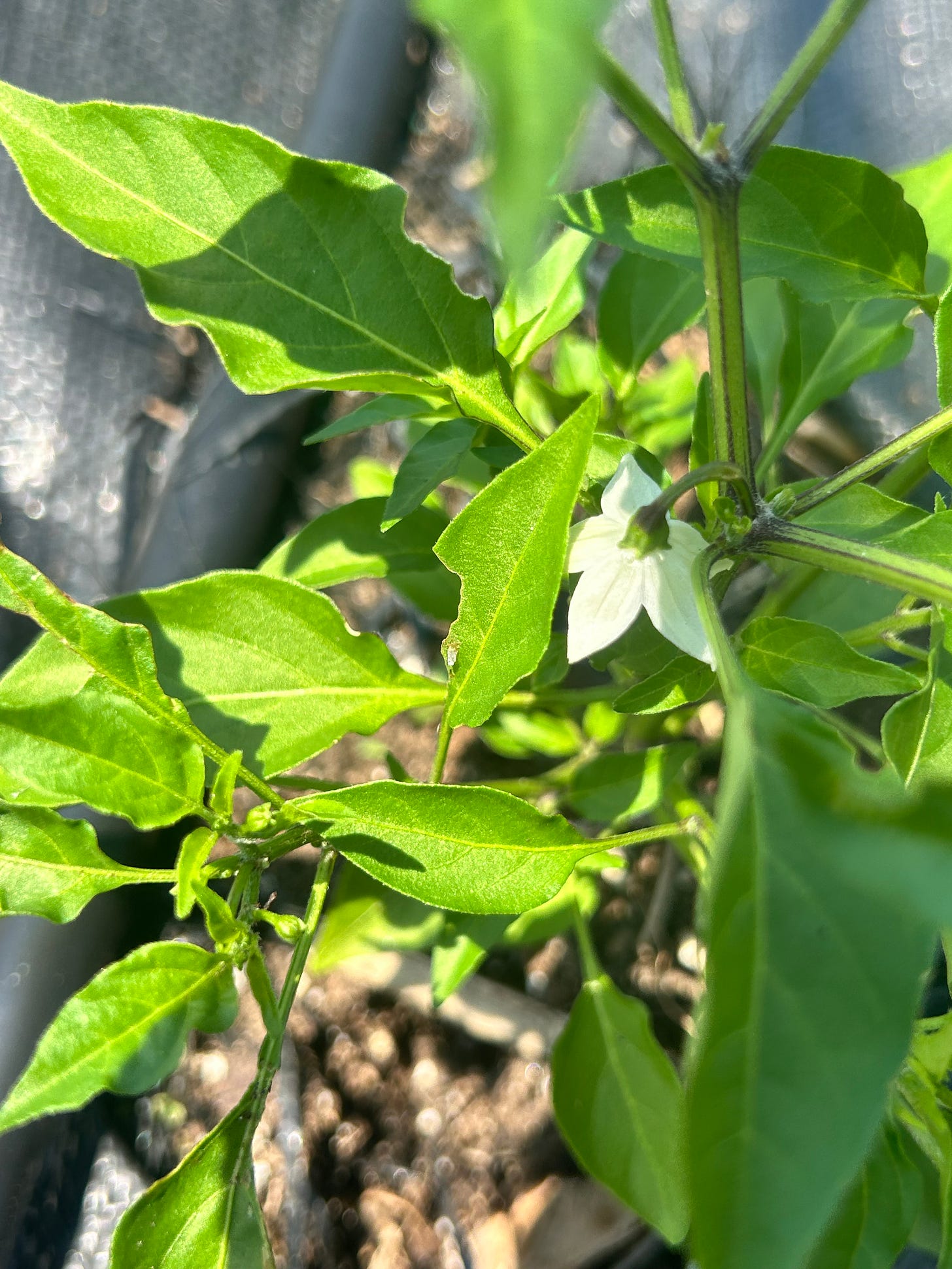“I cannot teach you a native language, but you can still listen to the ocean, to the shores, to the rocks, to the morning, to the east wind. You can experiment with a language where all is alive, all has a story.” - Christopher Marmolejo, Red Tarot
Last Saturday, I offered a workshop with Nicky Uy called Writing Ancestral Plants. We gathered on a drizzly day at the farm to tell stories about the plants that have shaped our lives, the meals we have made with them, and the lessons we have learned alongside them. Among many other things, we talked about the links between the global food economy and indigenous peppers, between Big Tobacco and tobacco as a sacred ritual, and the ways we might create and remake our relationships with plants in the context of environmental destruction.
One of the workshop participants talked about her family’s practice of making tamales, a multi-day process that relies on collective effort. This led us to discussing other dishes that are meant to be cooked in large quantities, with and for a crowd. During this conversation, I remembered watching Nadiya Hussain’s Netflix cooking show Time to Eat and feeling saddened about the implications of her extremely efficient, shortcut-laden recipes. The entire show has a frantic energy, with recipes and kitchen hacks geared towards overwhelmed parents and other exhausted workers. It suggests a life in which one person is given the responsibility of cooking for an entire household, a life in which nourishing the body is yet another task to be completed on the clock. Over time, I’ve come to appreciate Nadiya’s recipes and their utility for the depressed and overworked (including myself). However, our workshop conversation reminded me that the problem isn’t actually the five-minute breakfast recipes. The problem is a world where so many people face the enormous task of sustaining their bodies and households alone. The problem is the labor conditions that prevent us from gathering, from cooking meals that unfold over hours and days, from being able to listen deeply to each other and the land.
Each time Nicky and I have offered this workshop, I remind participants that the concept of ancestry doesn’t have to be limited to humans, or to blood relations. Ancestry can be a spacious thing, defined in part by the landscapes that have held you, the waterways you have grown up with, and the beings you claim as part of your lineage. It felt enormously touching to listen to people’s stories about the herbs that have called to them, the foods they didn’t grow up eating but have come to know in adulthood, and the plants that have accompanied them through every stage of their lives.
The quote that opens this newsletter has been on my mind since I read it several weeks ago. Nicky and I have taught variations of this workshop in different settings, from a university conference to a noisy public library. Each time has been an opportunity to learn how to listen in new ways, to expand my consciousness of the language spoken by food and plants. When we read poetry aloud together last week, time slowed down. We let the words linger in the middle of the table as we experimented with “a language where all is alive,” writing questions to the plants we carry with us. Have you ever dreamt of reincarnation? one person asked a rosemary plant. Is the air different in the mountains? another asked the siling labuyo pepper. What are you missing? someone else wrote to a struggling West Philly persimmon tree. Do you think you can wait till it comes?
Photos 1, 3, 4, and 5 taken by Ireashia Bennett.
At the nursery:
Nursery season is winding down for the spring. On Sunday, June 22, I had the last plant sale of the season, at the Black Farmers Market and annual Juneteenth parade. I’m giving away the last of the plant starts (if you’re in Philly and you want pepper plants, please let me know!) and transitioning much of my work to the high tunnels. With Nicky and Eli’s help, I cleared and tidied up the greenhouse and sterilized hundreds of trays and pots. With so many friends visiting and helping out this year, it’s felt more possible to be organized about greenhouse logistics and to do the small things that will make my life easier in a few months. The Jamaican pumpkins I’m growing for seed are thriving in the high tunnel. The bittermelon were stressed in the heat but are doing okay and spreading more now. The siling labuyo are getting leafier, and some are starting to flower.
This past week it felt like I never stopped moving, and I’m feeling both deeply tired and energized. On Juneteenth I had the honor of visiting Mt. Pleasant Acres Farms in Maryland, stewarded by Donna Dear and Paulette Greene. They are growing Aunt Lou’s Underground Railroad tomato starts from my nursery, and I got to visit the plants in the field. I was able to make the acquaintance of the Chesapeake Bay watershed while visiting Mt. Pleasant Acres. I sat on the rocks for a long time and watched Forster’s terns dive for fish in the brackish waters of the Choptank River, the waterway Harriet Tubman used to escape through Caroline County over 150 years ago.
This week’s songs: “Love Me JeJe” by Tems; “9 2 5" by Nourished by Time; "The Song of the Sea” by Emahoy Tsege Mariam Gebru




